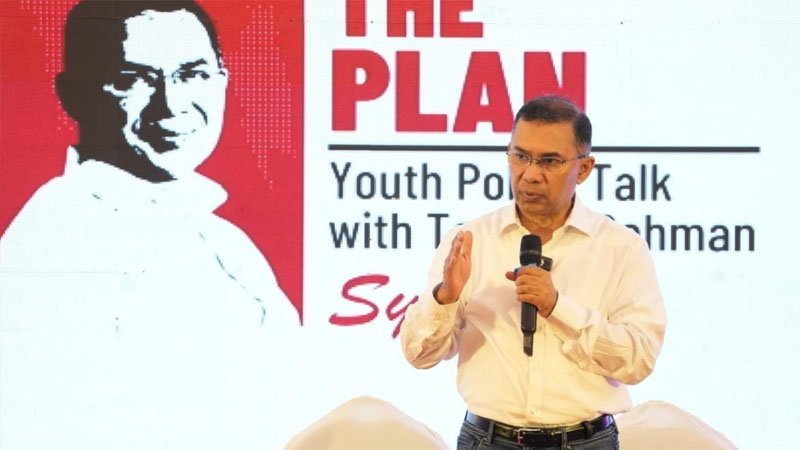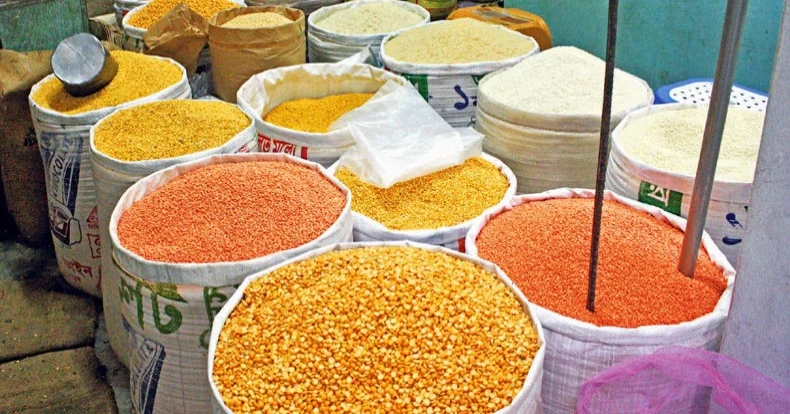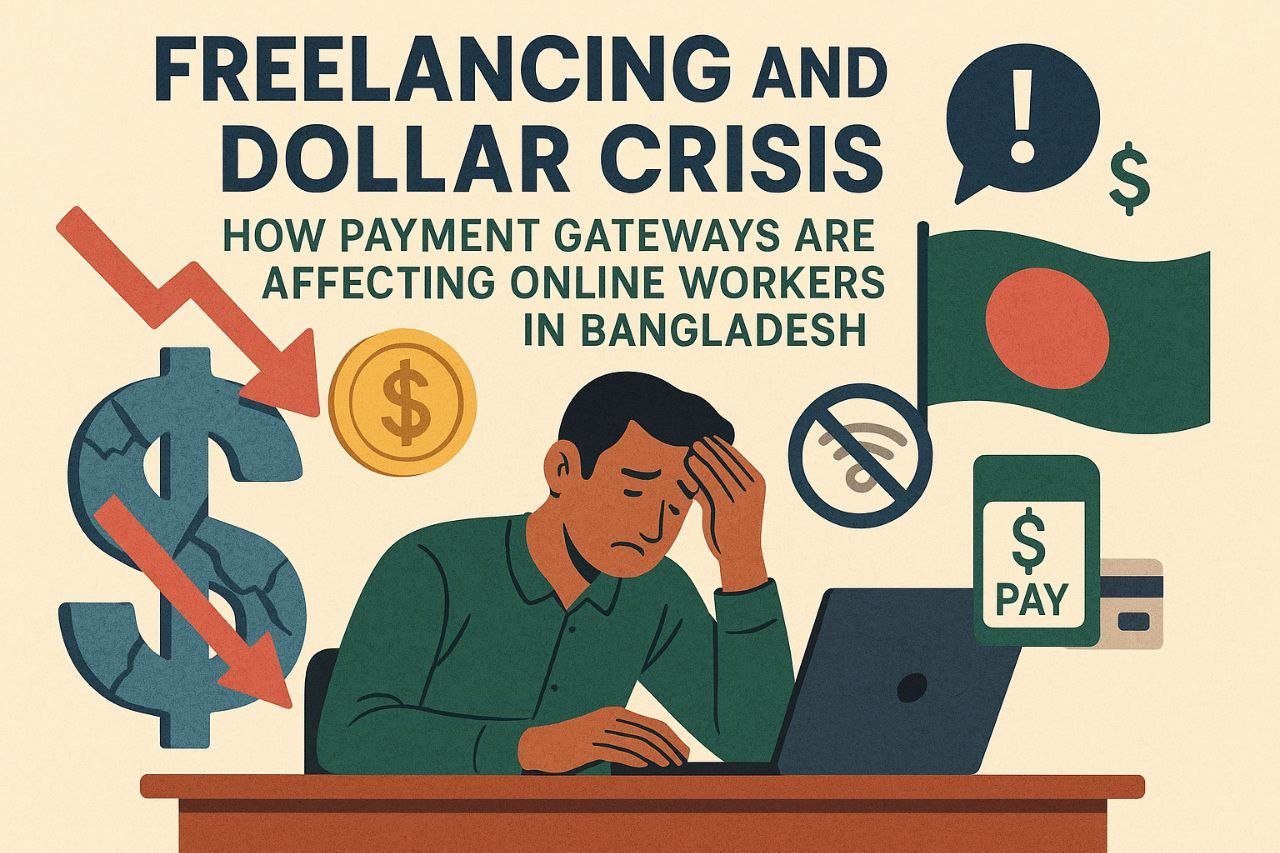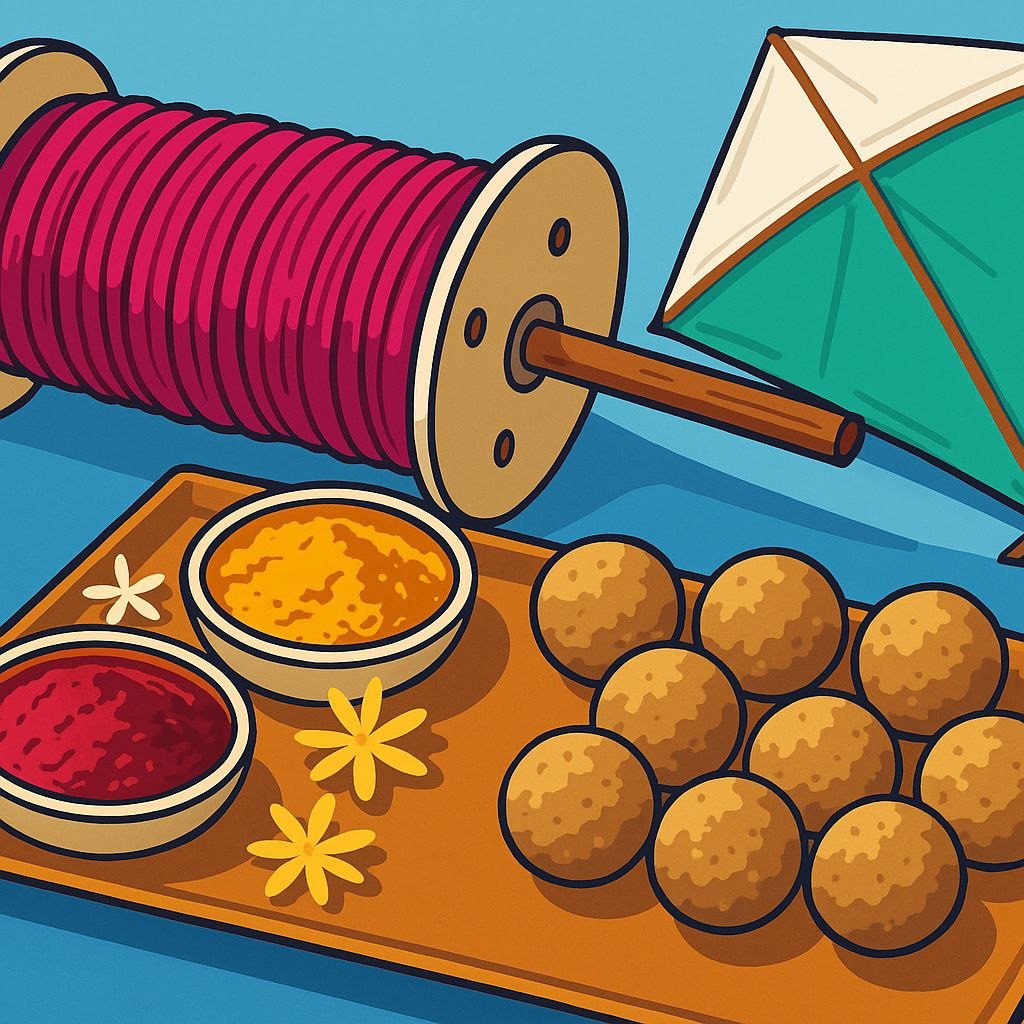Bangladesh Faces Its Greatest Divide Yet: Does Jilapi Belong in Muri Makha?
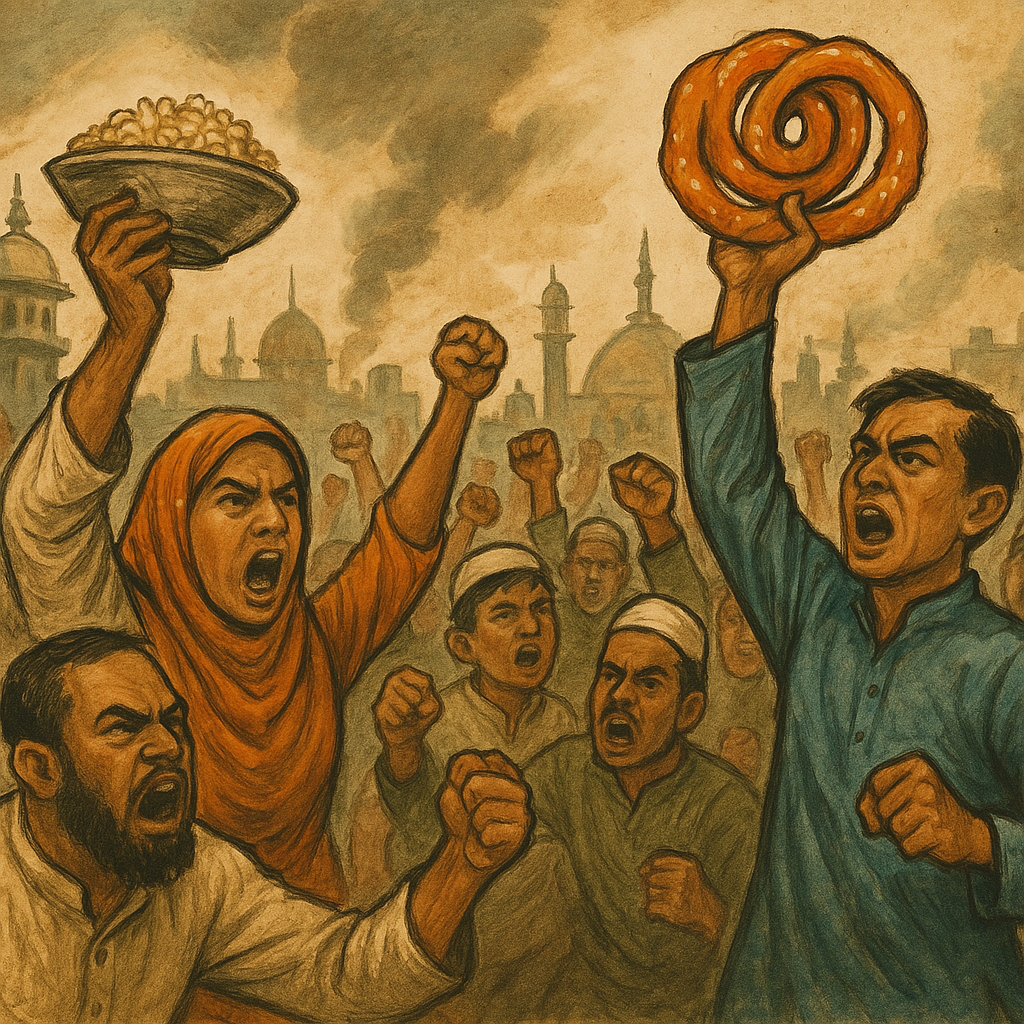
A Nation Divided by a Bowl of Puffed Rice
Bangladesh has faced many crises over the years—political turmoil, economic challenges, and the eternal battle of “Shingara vs. Samucha.” But today, the country stands on the edge of its most dramatic war yet: Should jilapi be mixed with muri makha?
This seemingly innocent food debate has caused chaos in homes, markets, and social media. Families are torn apart. Friendships are ending. Even tea stall philosophers have given up on discussing politics and are now arguing about the moral implications of dunking a sugar-soaked jilapi into spicy puffed rice.
So, let’s analyze this deliciously dramatic situation.
The Traditionalists: “Muri Makha Was Perfect Without Jilapi!”
On one side, we have the muri makha purists—people who believe that mixing jilapi with muri makha is an unforgivable crime. They argue that muri makha has survived generations in its simplest, most authentic form: Puffed rice (muri), Mustard oil, Onion, chili, salt, and lemon and maybe a handful of badam (peanuts), if you’re feeling fancy.
For these traditionalists, the idea of adding jilapi, a deep-fried sugar coil, is the ultimate betrayal. Kashem Dadu, a self-proclaimed muri expert, declared at his neighborhood tea stall, “If our ancestors wanted jilapi in muri makha, they would have done it long ago. This is cultural sabotage!”
Supporters of this movement have taken extreme steps—some have publicly boycotted jilapi, while others have been seen dramatically tossing contaminated bowls of muri into the trash. Rumors suggest that a few extreme purists are even writing a petition to the government, demanding a law against this “sweet invasion.”
The Innovators: “Jilapi in Muri Makha Is a Game-Changer!”
On the other side of this war stand the Jilapi-Muri Revolutionists, who believe that food should evolve. These brave souls argue that we are in the 21st century, and food must embrace change, much like society itself. Mukta Apa, a passionate food innovator, argues, “If we can mix boiled eggs and chicken with muri, why not jilapi? The sweetness balances the spice—it’s a revolutionary combo!”
Many university students, the pioneers of strange food combinations, have embraced this trend. Some even claim that jilapi-muri makha is the ultimate iftar hack, combining both a snack and dessert in one convenient bite. “Who needs dates when you’ve got this perfect union of sugar and spice?” one Instagram influencer wrote under her latest post showcasing the controversial dish.
Meanwhile, food bloggers and influencers are fueling the debate by posting TikTok videos, dramatically biting into a jilapi-infused muri makha and exclaiming, “Mouthwatering! You must try this!”
The innovators believe they’re creating the next big culinary revolution. Forget molecular gastronomy; this is a revolution in a bowl!
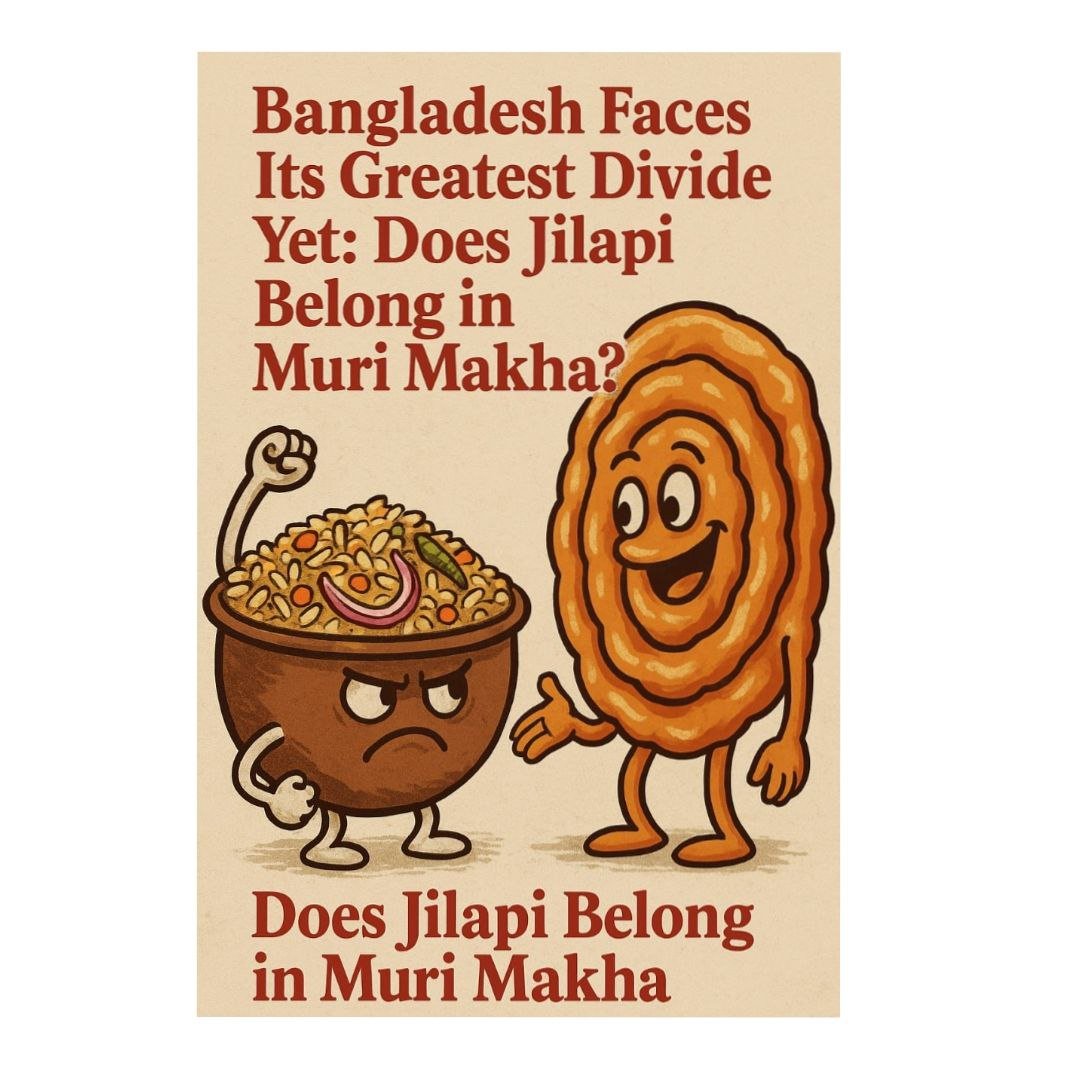
Health Experts Join the Battle
Caught in the crossfire of this war are the health experts, who are both horrified and confused. One doctor, speaking under the condition of anonymity (probably fearing backlash), stated, “Jilapi is deep-fried sugar. Muri is a light snack. Together, they create a calorie bomb! This combination could be a shortcut to diabetes.”
However, not all health professionals are against it. A nutritionist from Dhaka suggested, “If you eat it once in a while and walk 10,000 steps afterward, you’ll probably survive.”
Meanwhile, fitness freaks are having a full-blown existential crisis. One gym-goer was found anxiously staring at a bowl of jilapi-muri makha, whispering, “Is this bulking or cutting food? I don’t know anymore.”
The rise of health-conscious Bangladeshis and their confusion around this food mash-up has led to some highly humorous (and mildly terrifying) debates in the streets. Can the average Bangladeshi juggle their fitness goals while indulging in this sugary-spicy concoction? Only time—and a few gym sessions—will tell.
Social Media: The Real Battlefield
If you thought real-life arguments were intense, social media has taken this war to an entirely different level. Facebook and Twitter are flooded with heated debates, memes, and even conspiracy theories.
A recent viral post claimed, “This debate is more divisive than any election.” Another post humorously suggested that foreign forces might be responsible for jilapi’s sudden invasion into muri makha, calling it “a conspiracy to destabilize Bangladesh’s snack culture.”
Meanwhile, YouTube food bloggers have started blind taste tests, where participants must guess whether they are eating “muri makha with jilapi” or “muri makha with betrayal.” One viral video even showed a group of people dramatically recoiling after tasting the combination, declaring it “an act of war.”
Social media users have taken the art of food debate to new extremes, with people setting up entire pages dedicated to this one issue. The “Muri Makha Purists” Facebook group now has over 50,000 members, all fervently arguing that Bangladesh’s food culture is being ruined by these sweet invaders.

The Government’s Response
As the debate continues to escalate, many have demanded that the government intervene. So far, no official statement has been made regarding the issue, though some sources suggest that certain politicians secretly enjoy jilapi in muri makha but fear losing votes if they admit it.
One MP was overheard saying, “We have bigger problems to solve, but okay, fine, let’s set up a parliamentary committee to discuss this national crisis.”
The fact that the government is not taking the issue seriously has left some citizens outraged. Shouldn’t the leadership be prioritizing food security, infrastructure, and education? Apparently, not until this delicate food debate is resolved. The political sphere has temporarily shifted its focus to more pressing issues, like whether sugar and spice belong together in one infamous bowl of puffed rice.
The Future: Will Bangladesh Ever Recover?
As the holy month of Ramadan continues, the Muri Makha-Jilapi debate shows no signs of slowing down. Will Bangladesh accept this new food trend, or will the purists fight back and restore traditional muri makha to its former glory?
One thing, however, is certain: Bangladeshis will argue about food more passionately than they argue about politics. From the alleyways of Chawkbazar to the bustling lanes of Dhaka, no place is untouched by this great divide. Friends will break up, families will feud, and the once-unified country will face the consequences of a single, seemingly innocent question: “Should jilapi belong in muri makha?”
The future of Bangladesh’s culinary identity hangs in the balance. Will the innovators succeed in changing the game, or will the traditionalists defend their beloved muri makha and protect it from the sweet, sticky force of jilapi?
Only time will tell.
A Bitter-Sweet Victory (Or Defeat?)
In conclusion, while the debate rages on and the future of Bangladesh’s food culture remains uncertain, one thing is crystal clear: this debate is a reflection of something much deeper. It’s not just about food; it’s about preserving tradition, embracing change, and the eternal struggle of balancing both in a fast-changing world.
But, let’s be honest—regardless of where you stand on this debate, the real question is: who’s bringing the jilapi to the next iftar?
And remember, in a nation this passionate about food, even the tiniest changes to traditional recipes can spark a revolution. So, as Bangladesh faces this crisis, be sure to keep your muri makha bowl close—and your opinions even closer.

